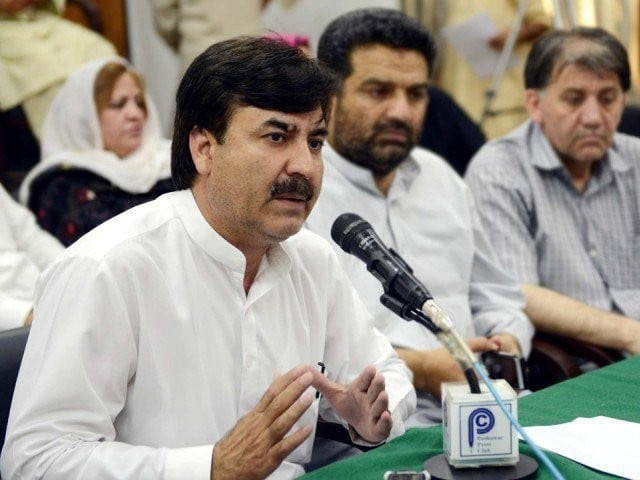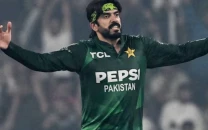Shaukat Yousafzai sees PTI-govt talks breaking down
Yousafzai expressed his concerns in the wake of the repeated postponement of the £190 million reference case

Pakistan Tehreek-e-Insaf (PTI) leader Shaukat Yousafzai has warned that the ongoing negotiations between the PTI and the ruling government might come to an end if there is no progress on the judicial commission by 31 January.
Yousafzai expressed his concerns in the wake of the repeated postponement of the £190 million reference case, which had been deferred for the third time, leading to growing dissatisfaction within the PTI ranks.
Speaking to the media, he criticised the delays in the case verdict, which he said were damaging the credibility of Pakistan’s judicial system.
Shaukat Yousafzai accused the government of using the judicial process to buy time, stating that the ruling party was apparently seeking an “NRO” (National Reconciliation Ordinance)—an amnesty deal aimed at protecting certain political figures from corruption charges.
Yousafzai reiterated PTI’s stance, emphasising that the party would neither seek nor accept such a deal.
The PTI leader further suggested that the ongoing delays in the case were a clear attempt to undermine the judicial system and prevent accountability. “It seems like the government is delaying the case for their own political gain,” he said.
“This is a mockery of the judicial process, and the judiciary must take strong action to restore faith in the system.”
Yousafzai also took aim at the ruling coalition, particularly Finance Minister Ishaq Dar and other senior members of the Pakistan Muslim League-Nawaz (PML-N) and Pakistan Peoples Party (PPP). He accused them of prioritising business interests over governance, thereby exacerbating the economic crisis.
According to Yousafzai, the policies of the ruling government had caused significant financial strain on the country, leading to a rise in public suffering.
He cited the increase in national debt, including the controversial Rs 27,000 billion debt accumulated over the last two years.
Yousafzai demanded an investigation into the power purchase agreements (IPPs) and called for a probe into the business interests of key politicians who, he claimed, had used their political power to strike “unfair” deals in the energy sector.
“The country’s economy is on the verge of collapse because of these people,” Yousafzai said. “We need to expose those who have used politics as a cover for their business dealings, especially in the power sector.”
He also criticised certain ministers for undermining the ongoing dialogue, suggesting that their statements were being manipulated to derail the negotiation process. Yousafzai singled out former PTI leader and current government ally Faisal Vawda, accusing him of making baseless predictions about PTI’s political future.
Yousafzai’s remarks come amid mounting frustration within PTI over the lack of tangible progress in negotiations with the government. The talks, which were initially seen as a potential pathway to political reconciliation, have struggled to make headway, with key issues such as electoral reforms and the role of the military in politics remaining unresolved.
In the face of growing uncertainty, Yousafzai made it clear that PTI’s participation in talks would depend on progress in the judicial commission regarding the £190 million pound case. He stated that if there was no positive development by the end of January, PTI would reassess its position and decide whether to continue negotiations.
“We are hopeful that there will be progress, especially with the judicial commission, but if that doesn’t happen, then the talks will come to an end,” Yousafzai said. “Imran Khan will take the final decision on whether or not to continue the negotiations after 31 January.”
Yousafzai’s comments highlighted the growing divide between the ruling government and PTI, with both sides seemingly unable to bridge their differences. While PTI has repeatedly called for judicial accountability and reforms, the government has defended its handling of the economy and national affairs.
Despite the political tension, Yousafzai expressed one final hope: the role of Pakistan’s judiciary. He stressed that PTI’s only remaining hope for a resolution rested with the higher courts. “If the judiciary fails to deliver, then only Allah can help this country,” he said, emphasising the importance of judicial independence and fairness in the face of political turbulence.
Yousafzai concluded by urging the judiciary to take a firm stance on the ongoing issues, asserting that it was their responsibility to restore public trust in the country’s legal system.



















COMMENTS
Comments are moderated and generally will be posted if they are on-topic and not abusive.
For more information, please see our Comments FAQ